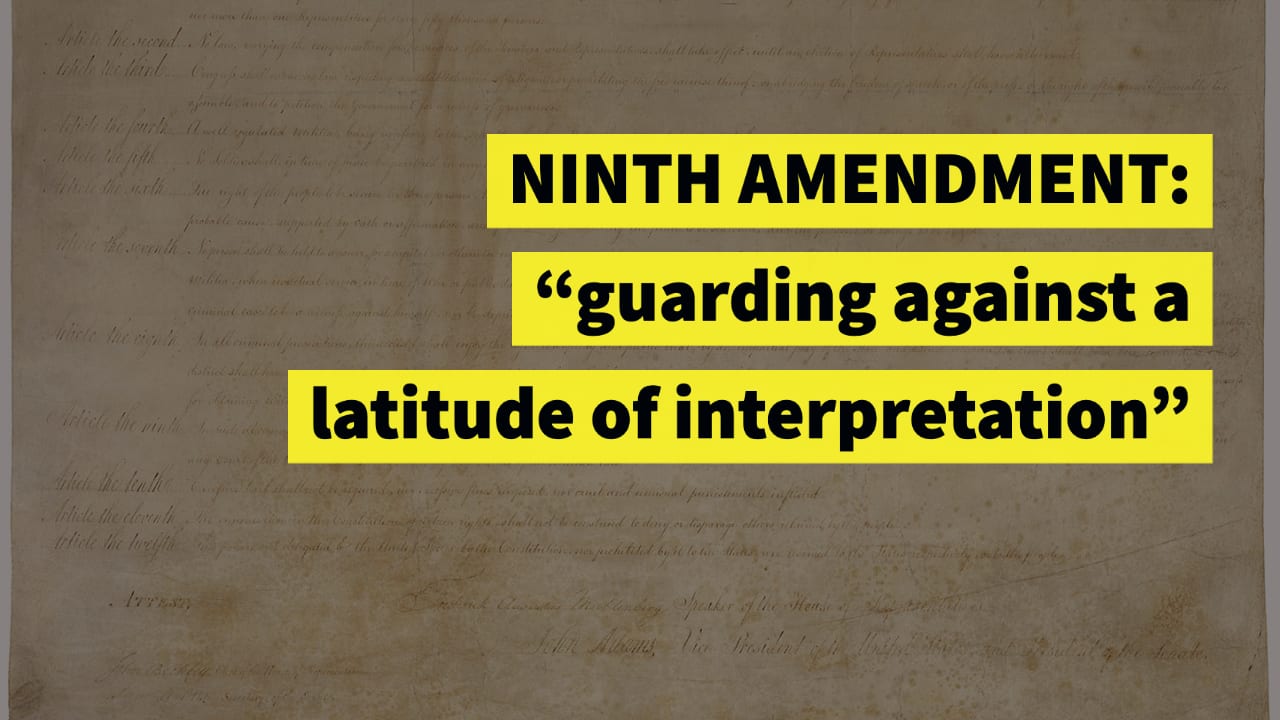HikerGuy83
DP Veteran
- Joined
- Oct 22, 2021
- Messages
- 7,279
- Reaction score
- 2,934
- Location
- Arizona
- Gender
- Male
- Political Leaning
- Conservative
On another thread, this topic became a focal point with many very arguments being made.
I'd like to consolidate those thoughts and have a chance to consider some of the very good points that were made in the discussion.
For me personally, I've not been exposed to many discussions around the night amendment.
Certainly, the 10th amendment is something I've paid attention to over the years.
Recently, I've seen some of the writings of Kurt T. Lash. Lash is a professor of constitutional law (now I am not sure what exactly that means) at the University of Richmond. He's written several articles and I believe even some books.
I found this from prof. Lash which I thought I would share as a starting point. I am not saying I am in agreement as I have so much to learn on the subject.
Madison’s description of the Ninth Amendment as “guarding against a latitude of interpretation” is consistent with his originally stated purpose for “the last clause of the fourth resolution.” The Ninth declares that just because the Bill of Rights list some constraints on federal power, this may not be construed to imply that federal power is otherwise unconstrained (Hamilton’s concern).
The Tenth Amendment further declares that all powers not properly construed as falling within those enumerated powers are reserved to the people in the states. Significantly, both the Ninth and Tenth Amendments use the language of popular sovereignty – it is the people’s right to create a national government of limited power and reserve all nondelegated powers and rights to the people in the states.
Between the Founding and Reconstruction, scholars, lawyers, and judges repeatedly and consistently interpreted the Ninth Amendment as working in tandem with the Tenth to preserve the retained powers and rights of the people in the states.

 tenthamendmentcenter.com
tenthamendmentcenter.com
Looking forward to some great discussion.
My apologies for being slow to read and review some of what is posted...
I'd like to consolidate those thoughts and have a chance to consider some of the very good points that were made in the discussion.
For me personally, I've not been exposed to many discussions around the night amendment.
Certainly, the 10th amendment is something I've paid attention to over the years.
Recently, I've seen some of the writings of Kurt T. Lash. Lash is a professor of constitutional law (now I am not sure what exactly that means) at the University of Richmond. He's written several articles and I believe even some books.
I found this from prof. Lash which I thought I would share as a starting point. I am not saying I am in agreement as I have so much to learn on the subject.
Madison’s description of the Ninth Amendment as “guarding against a latitude of interpretation” is consistent with his originally stated purpose for “the last clause of the fourth resolution.” The Ninth declares that just because the Bill of Rights list some constraints on federal power, this may not be construed to imply that federal power is otherwise unconstrained (Hamilton’s concern).
The Tenth Amendment further declares that all powers not properly construed as falling within those enumerated powers are reserved to the people in the states. Significantly, both the Ninth and Tenth Amendments use the language of popular sovereignty – it is the people’s right to create a national government of limited power and reserve all nondelegated powers and rights to the people in the states.
Between the Founding and Reconstruction, scholars, lawyers, and judges repeatedly and consistently interpreted the Ninth Amendment as working in tandem with the Tenth to preserve the retained powers and rights of the people in the states.

The Ninth Amendment and the Right of Local Self-Government | Tenth Amendment Center
The drafter of the Ninth Amendment, James Madison, expressly described the Ninth Amendment as working in tandem with the Tenth to prevent the national government from interfering with matters constitutionally reserved to the people in the states.
Looking forward to some great discussion.
My apologies for being slow to read and review some of what is posted...
